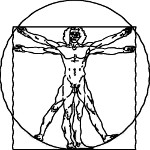



|
Renaissa |
|
Rome’s famous orator, Cicero, coined “studia humanitas” to describe a curriculum emphasizing grammar, rhetoric, history, poetry and philosophy. Building on that base during the 18thcentury German “enlightenment,” the definition of Humanism was expanded to include physical achievement. |

|
Humanist |
|
Travel |
|
Sports |
|
Philosophy |
|
Art |
|
Travel is experience: new places, new people, new concepts, and new ideas. Travel is something you must experience physically. It is uncomfortable and exhilarating, mundane and mysterious, eating unfamiliar food, and smelling unpleasant aromas. It is meeting and getting to know people with whom you do not share a common language. To accomplish the aspect of Travel, numbers, though somewhat arbitrary, will suffice: have you been to all 7 continents? Visited 100 countries? Lived someplace else for 3 years? Speak another language? Achieving these goals will make you a Renaissance Myn of Travel. |
|
Competitiveness, whether it be against others, against a
thing, or against ourselves, has always served to relax
one’s soul. Somehow, the focus of our minds during
competition relaxes us, excites us, is an anticipated
pleasure; and who would deny that the agony of defeat
& failure contributes to our wisdom? To measure the
success of a competitor is to measure their satisfaction
in their accomplishment. Certainly, brawn and
physical prowess is a recognized form of sport, but Sports
encompasses all types of competition. Not just a
professional athlete qualifies, so do amateur activities,
such as competing in triathlons, that raise one’s
achievements significantly above the majority of people.
Also, there is competition in ballroom dancing, contract
bridge, and chess tournaments. Plus
self-competition, like hobbies, such as model trains,
cooking, hunting, numismatics, or any of the myriad things
that compulsively competitive people gravitate towards.
Photos, articles, awards & collections can prove
facility as a Renaissance Myn in Sports. |
|
The most visible aspect of wisdom is a contemplative nature. Though philosophies have been handed down for thousands of years by the most astute of theorists, the answer to “why am I here?” still has not been adequately answered. The query goes to the very existence of human nature: are we evolved, or are we playthings of some omnipotent being? Are people born evil, or are they born good? The complete Renaissance Myn is fully conversant of the plethora of existing hypothesis from Lao Tzu to Buddha; from Aristotle to Immanuel Kant; from karma to fate. Both formal & informal education in philosophy, accompanied by original thoughtful concepts indicates a philosophical nature. Political ideology often overlaps philosophy, and committed defense of one’s ideals in a political forum is certainly part of the Philosophical pursuit of a Renaissance Myn. |
|
Everyone has created art but few can be called artists. The subjectivity of “art” is renown. A person who is paid for what they create is easier to identify but the vast majority of artists go unsung. Traditionally, painting, prose, and pretension are what one thinks of as art but creativity can take a myriad of forms. Art is a vast category, including music, draftsmanship, writing, restoration, expertise in the history of art, or production of items for purely ephemeral enjoyment. A Renaissance Myn in Art is a combination of quality, quantity, breadth, and depth of a person’s artistic endeavors. |
|
The Humanist aspects of Art, Travel, Sports, and Philosophy are all contemplative in nature, often in pursuit of personal entertainment, and are therefore somewhat subjective. However, since these aspects focus inwardly, they are an important contribution to the completeness of a Renaissance Myn’s soul and incorporeal being. |